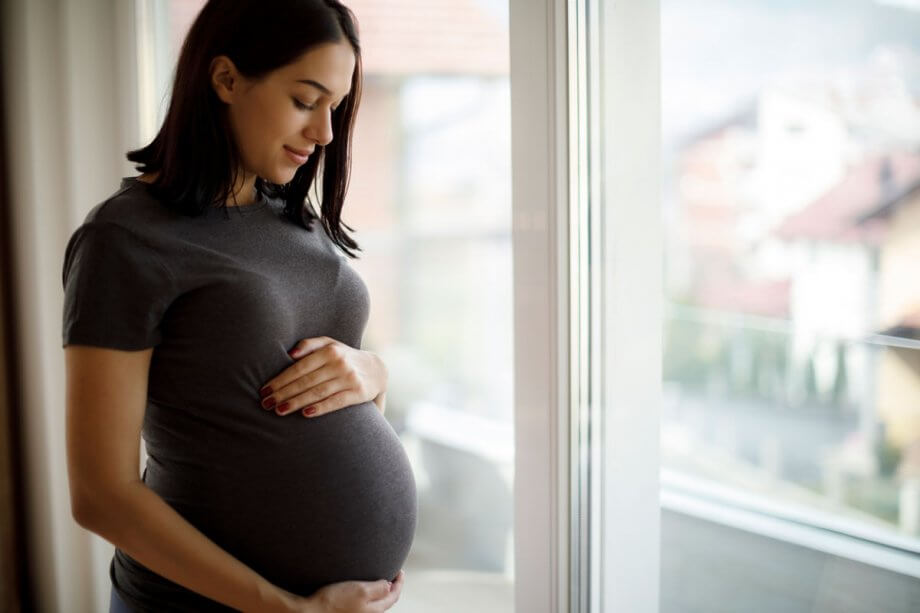
Leann Clink BSN, RN
Is there a difference between THC vs. CBD?
Marijuana in pregnancy brings many questions to the forefront, no matter how you use marijuana; smoking, oils, pills, sprays, dabbing or edibles. There are two primary chemicals in marijuana, THC (tetrahydrocannabinol) and CBD (cannabidiol). There IS a difference between THC and CBD. Marijuana is used medicinally and recreationally. One reason people use marijuana is because it is “natural.” Natural does not equal safe. There are many things in our lives that may be natural (snake venom, botulism) but that does not mean it is safe to use. Marijuana falling into the natural category does not equal safe category.
THC is the more controversial part of marijuana and is what most people recognize. THC is what causes the “high” and is usually why people use marijuana. One thing that needs to be noted is that the marijuana of today (2020’s) has a 25% higher concentration of THC than the marijuana of the 1990’s which only had about a 3-5% concentration.
CBD does not cause a “high” and is often used in alternative and mainstream medicine. There are three main types of CBD: 1) Full-spectrum CBD – contains some properties (up to 0.3%) THC, it’s least expensive, least pure, and may show up on drug tests 2) Broad Spectrum CBD is purer, contains a range of naturally occurring compounds from cannabis but usually no THC and doesn’t usually show up on drug tests but can affect a pregnancy or baby in a harmful way 3) CBD isolate is the purest and contains no other parts of the cannabis plant other that CBD, tends to be most expensive and doesn’t show up on a drug test but may still be harmful to the pregnancy or baby.
Many women choose to use marijuana in pregnancy to decrease nausea, depression, anxiety, and pain. If marijuana is used for these conditions, how does it work in the body? There are sites in our bodies called endocannaboid so our body will respond specifically to THC and CBD both. Marijuana affects many body systems, especially the circulatory, nervous, respiratory, immune, endocrine (hormones), and limbic (psychological/emotional) systems.
How does it affect my pregnancy?
The circulatory system is affected in many ways. First, a woman’s heart rate and blood pressure increase while decreasing the amount of oxygen in her body because her blood vessels narrow. When a woman’s blood pressure increases, a baby will have decreased blood flow and nutrition delivered by the umbilical cord and placenta. This decrease frequently leads to a smaller baby who may be at a higher risk for health problems due to his decreased size.
Second, research from Stanford, NIH and others have shown that an increase in heart rate and blood pressure increases the risk of heart attack within the first hour of use, up to 5 times higher. This research also shows that risk of heart disease is increased even if a woman smokes as little as once a month.
The nervous system is affected because THC is fat soluble. This means that THC is stored in the brain and nervous system of women and babies. It is where all sensory organs (eyes, ears, nose, balance, etc.) are housed. A woman’s thinking and reflexes are slowed which can impair driving, increasing risk of accidents, falls and risk-taking behaviors. Marijuana use has been shown to affect memory and judgement. During pregnancy this could mean she may forget appointments for prenatal care or other important tasks. THC will quickly and easily cross the placental barrier because it is fat soluble. This also means that cannabis can be passed to baby through a mother’s breastmilk. During pregnancy a baby’s brain is composed mostly of fat and is the fastest growing organ in his body so this would indicate that long after mom has stopped using marijuana baby can still be affected. Some studies have shown it can affect sleep and learning long after birth.
The respiratory system is affected because there is carbon monoxide and other toxins in marijuana smoke just like tobacco and vaping smoke. Because blood vessels narrow with marijuana – this will lead to smaller airways and less oxygen in the blood. These changes have also led to a decrease in the body to fight infections so the immune system is affected. Women who smoke in their pregnancy, whether marijuana or tobacco/nicotine, may have an increased risk of SIDS (sudden infant death syndrome) for baby after delivery.
Endocrine and Limbic Systems affect our hormones and emotions. While many use marijuana to decrease anxiety and depression, marijuana often increases a woman’s feeling of anxiety and depression. This change can put a woman at higher risk for self-inflicted injury or risk-taking behaviors. Marijuana usage can also increase stress levels, which increase cortisol levels. Increased cortisol is bad for everyone but can have long term effects on a developing baby in the uterus. If a woman is trying to get pregnant, cannabis products can lead to a decrease in hormones involved in fertility making it harder for her to become pregnant. Cannabis has also been known to decrease a man’s sperm count.
Is there any amount that is safe?
Currently, there is NO known safe dosage of marijuana or CBD during pregnancy. A study published in 2022 but completed in 2016, showed that women who used any form of cannabis (THC or CBD) during pregnancy increased the risk of that child being obese and having higher blood glucose levels than children not exposed to cannabis. If you are using any cannabis product, please talk with you doctor about usage or alternatives during your pregnancy or beyond.
